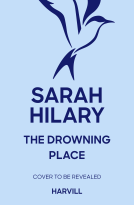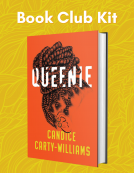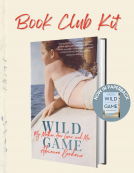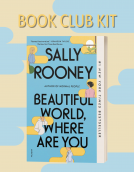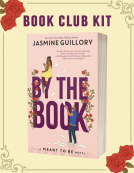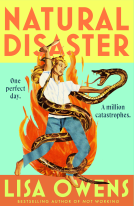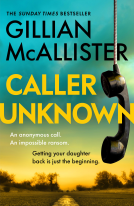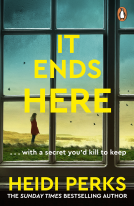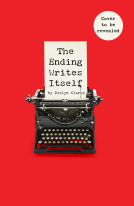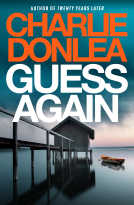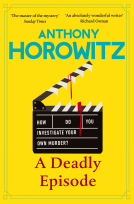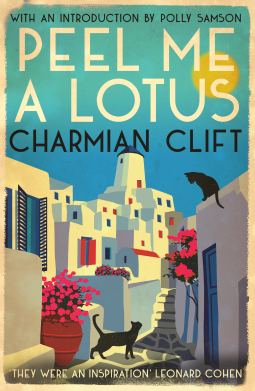
Peel Me a Lotus
by Charmian Clift
This title was previously available on NetGalley and is now archived.
Send NetGalley books directly to your Kindle or Kindle app
1
To read on a Kindle or Kindle app, please add kindle@netgalley.com as an approved email address to receive files in your Amazon account. Click here for step-by-step instructions.
2
Also find your Kindle email address within your Amazon account, and enter it here.
Pub Date 1 Apr 2021 | Archive Date 30 Apr 2021
Talking about this book? Use #PeelMeaLotusCharmianCliftPollySamson #NetGalley. More hashtag tips!
Description
The inspiration behind the Sunday Times bestseller A Theatre for Dreamers by Polly Samson
In 1951 the Australian writers Charmian Clift and George Johnston left grey, post-war London for Greece. Settling first on the tiny island of Kalymnos, then Hydra, their plan was to live simply and focus on their writing The result is Charmian Clift's best known and most loved books, Mermaid Singing and Peel Me a Lotus.
Peel Me a Lotus, the companion volume to Mermaid Singing relates their move to Hydra where they bought a house and grappled with the chaos of domestic life whilst becoming the centre of an informal bohemian community of artists and writers. That group included Leonard Cohen, who became their lodger, and his girlfriend Marianne Ihlen.
Clift paints an evocative picture of the characters and sun-drenched rhythms of traditional life, long before backpackers and mass tourism descended
A Note From the Publisher
Charmian Clift (1923-69) was a much-loved Australian writer and essayist she wrote two novels, many essays and collaborated with her husband, George Johnston on three books.
Advance Praise
‘These are blissful reissues that will bring Grecian heat and light to your life, and much more besides’
Editor’s Travel Choice. The Bookseller
‘A really beautiful writer who just puts you right there’ Polly Samson
‘The Australians drank more than other people, they wrote more, they got sick more, they got well more, they cursed more, they blessed more, and they helped a great deal more. They were an inspiration.’
Leonard Cohen on Charmian Clift & George Johnston
Marketing Plan
National Press
The Daily Express review
The Sunday Times review
The Times review
The Daily Telegraph review
The Guardian review
The Observer review
The Daily Mail review
The Mail on Sunday review
Evening Standard review
FT review
LRB review
TLS review
Magazines
Red
Good Housekeeping
Stylist
Wide coverage from Bloggers / Freelance reviewers / influencers
Broadcast
Monocle Radio
Talk Radio
BBC Radio London
The Shift
Times Radio
BBC World Service – Arts Hour
Available Editions
| EDITION | Other Format |
| ISBN | 9781838110123 |
| PRICE | £8.99 (GBP) |
Links
Average rating from 26 members
Featured Reviews
 Elaine D, Reviewer
Elaine D, Reviewer
I loved Polly Samson’s book ‘ A theatre for dreamers ‘ and was eager to read Charmian Clift’s own account of her own life on Hydra in the fifties. It did not disappoint,
For anyone who has ever visited the Greek islands (Hydra or Symi in particular ) and wondered how they came to be and who walked those worn pavements. Read this preferably with the sun shining and a blue sea to hand.
Charmain Clift's memoir of moving with her writer-husband George Johnson and their children to Greece in the early 1950s. Her vivid writing immerses us along with her and her family into peasant life on an impoverished Greek island. Her two companion memoirs (Mermaid Singing and Peel Me a Lotus) are insightful, charming, and funny. Despite occurring only decades ago, life there mirrors peasant life centuries ago. In Peel Me a Lotus, the family moves from the tiny island of Kalymnos to Hydra, where they buy a house and join a bohemian community of writers and artists. A charming read for anyone enjoying memoirs about creating family life in strange places long before modern tourism descended on Greece.
"At least our way of life is of our own choosing." Oh, man. Can I ever relate. Australian authors settle on Hydra in the 1950s (pre-tourism) where they raise their family and write enough to live. Clift's writing is absolutely delectable...she had me hanging onto every word. She vividly describes the topography, scenery, food, friendships, swimming, children being children and sharing community. As I split my time between Canada and Europe I found myself chuckling and nodding in agreement to shared experiences from buying a home to renovating to bumbling with a foreign language to village life on the Mediterranean. Her delightful descriptions of the Pancreatic Juices are brilliant and spot on! We, too, hear lunatic donkeys at night. And Creon...we also know a Creon!
"Shedding so much we are stripped to our bare selves, lighter, freer...". Wow. Exactly my feelings when in Croatia where daily life is so similar, much simpler. Clift writes with such detail it is easy to visualize every single nuance, every gesture, every scene. She captivated me and took my breath away as well! Sure, her family encountered problems. Not everything goes smoothly. But one's happy place is well worth working for. As she explains, the rewards highly outweigh the challenges.
Whether you are an expat, traveler or dream about travel (especially during these covid times) please, please read this entrancing book. I cannot possibly recommend it highly enough. Such a lovely treat! I just love reading about those who push for their dreams and adventures.
My sincere thank you to Muswell Press and NetGalley for the privilege of reading this fabulous book!
 ANGIE W, Reviewer
ANGIE W, Reviewer
The companion book to Mermaid Singing. In Mermaid singing the family move from Australia to a small Greek island in the 1950's. In this one, the follow up, they move again, to an even smaller Greek island.
The times and the characters are well drawn, and you really understand how harsh it was to live there at the time, as a local but also as a family of outsiders.
A charming and enjoyable read.
 Reviewer 793671
Reviewer 793671
Beautiful book about Cliffs travel memoir in Greece, their humour and vivid experiences shone through, felt like I was right there with them. Would recommend
 Anna J, Reviewer
Anna J, Reviewer
Peel me a Lotus
The second book from Charmian Clift, with a very good introduction and explanation from Polly Samson. I got a lot more from Polly’s involvement, insight and description in this book than I did from the first. It certainly set the scene and helped to explain the very dramatic alteration in style, voice and approach from Charmian’s first novel, Mermaid Singing. Whilst the first was light-hearted, inspirational and a joy to read, this felt much darker, sadder and harder to get through.
Sadly, for me, the move to another island (Hydra) with an ex-pat/foreigner community already installed really changed the direction of this book and the family’s life. Instead of integrating into Greek life and really embracing the island community I felt the incomers simply set themselves up as ex-pats and as a result struggled to enjoy the same experience as they had on Kalymnos. Some of the background from Polly about events that followed their departure from Hydra and ‘liaisons’ that were ongoing at the time of writing but are not explicitly included in the book may also help to explain the sharpness, the lack of ‘love’ for this second stage adventure. I still enjoyed the book and am glad I read it, but it wasn’t as much of a delight as the first and definitely needs Polly’s input to make sense of things.
 Melissa J, Librarian
Melissa J, Librarian
I enjoyed this memoir, which is a follow up to the author's book 'Mermaid Singing'.
Like the first book, the characters in this memoir are just as colourful and eccentric. In 'Peel Me a Lotus', the family has moved to the island of Hydra and have bought a house.
The family continues to struggle with money and island life, especially at a time when there is some nationalist hostility towards foreigners, especially the English. Their situation is further complicated by Clift's pregnancy, but I really admired the tenacity of Clift and her family to follow their dream and live the island life, despite all of the obstacles that they were up against.
This book also features some other writers and artists who come to the island and I really enjoyed the insight into Bohemian life. I think it would make a great film.
"... there's that odd melancholy feeling, And a sense of guilt I can't deny..." If the Abba lyrics were a book, this would be it.
Charmian Clift writes beautiful prose. Hilarious things happen to crazy island dwellers and temporary visitors. Despite all its past glory the island of Hydra sounds fun and tempting and everything adventure. And Charmian captures everything with the right choice of words, the exact metaphors. You feel the wind, the heat, the desperate lack of money, you see the lack of teeth, and the dancers on the film set - it's literally like being there. Yet, there is this sad melancholy under everything she wrote.
 Bethannia N, Educator
Bethannia N, Educator
Read as a companion to Mermaid Singing by the same author, this memoir is similar in style and content but slightly darker and more philosophical in tone. Focusing on the travellers and ex-pats who join the family on Hydra, there's a sense of melancholy and fore-shadowing of the authors ultimate suicide.
Despite this, I enjoyed the detailed descriptions of their Greek life, and the colourful cast of characters who joined them.
 Christina D, Educator
Christina D, Educator
I was looking very forward to this book having read and loved “Mermaid Singing”. This book continues the adventure of two writers and their young children on the Greek island of Hydra.
You don't HAVE to read Mermaid Singing, the first of Clift's memoirs about living on a Greek island in the 1950s, in order to understand what's going on here; not least because they've moved islands, so it's a whole new crowd of people. But I think it helps, because you come with a sense of what Clift and her husband George Johnston have already experienced, why they left London, and thus can better appreciate their experiences.
Like Mermaid Singing, this is a "domesticity in the exotic" story - Clift and her family living now on Hydra, a small, largely poor Greek island, on the cusp on becoming A Destination for the Artistic, the Beautiful, and the Hangers-On. Clift and her husband/collaborator have bought a house, which brings with it large dollops of angst: partly because of the never-ending requirement for repairs, on a budget that's basically nonexistent; and partly because now they are settled, they are halfway back to being bourgeois, and many of their fellow Artistic Types can't figure out if they're jealous or derisive. Both, it seems.
Unlike Mermaid Singing, Clift is much more ambivalent here about the whole experience: both her own experience, and what island life is like. While in the first she and George are actively writing a novel together about the sponge divers, here she seems to be entirely consumed with looking after the house and the children - indeed, she is hugely pregnant as the book opens, an experience which understandably consumes a significant part of her mind and time. George gets to clatter away at the typewriters, but Clift is busy buying food, making dinner, caring for the baby and the other two children, and so on. Sometimes she seems content with this, and at other times deeply frustrated, worried she is merging into that always-has-been, always-will-be experience of motherhood that she sees all around her. So... a fairly familiar experience, no doubt, for many women who find motherhood a time of personal conflict.
Island life bounces between the seeming idyllic - the beach swim every afternoon, cheap and bountiful food, glorious landscape, interesting if infuriating neighbours (usually it's the foreigners who are infuriating) - and its opposite. There's hardly any water to be had in summer. Many people's health is poor, there are huge prowling alley cats, rubbish is dumped directly into the harbour and no one knows where the sewers drain. Clift doesn't shy away from the negatives, and also makes little effort to reconcile the two extremes; it's the reality of life, after all.
A lot of time is spent talking about the other foreigners, for whom she uses pseudonyms, and it's probably a good thing she did. Having read the introduction, though, it seems their identities are - were? - no secret; Henry and Ursula are Sidney Nolan and his wife Cynthia. Clift presents the various non-Greeks as looking for inspiration or pretending to do so, living dissolutely because they can afford to; some of them are getting allowances from parents, for instance, so they barely even need to dabble in their art. Not so for Clift and Johnston, who are trying to eke out a living on royalties. I don't even want to look up Hydra today, for fear it's exactly as Clift prophesied - fancy tourist hotels for the Beautiful People - which may or may not have had positive benefits for the people whose ancestors initially colonised the place.
In some ways I can't believe this book is more than 60 years old. Parts of it show what feels like a very modern sensibility, while other bits are clearly products of the 1950s. It's gorgeously, evocatively, provocatively written and I hope lots of people get to read it.
 Mallika R, Reviewer
Mallika R, Reviewer
My thanks to Muswell Press and NetGalley for a review copy of this one.
This is the second volume of memoirs by Australian writer Charmian Clift of the time she and her family spent in Greece (they lived there 14 or more years). The first, Mermaid Singing, was of their time on the island of Kalymnos while this one is of a year in Hydra. I think it is may be a little less than a year—beginning in February and ending in October. Each section is about the events in a particular month.
As the volume opens, we learn the family is in Hydra and in the process of buying a house of their own (When they moved and why Hydra was their choice is not explained). This is expensive at 120 gold pounds (thus taking away nearly all of their savings), but still a large house at this price is something they would never have been able to afford in England. Charmian is at the time expecting her third child. The first part of the book focuses on how they go about buying a house and all the work that is needed to get it in shape before they can move in. By this time, her children Martin and Shane are used to life in Greece, attend school there and play with their new friends. Unlike Kalymnos where Clift and her family were the only foreigners, Hydra has a sizeable community of expats, mostly artists and writers, and a few intellectual hobos as well as drifters and tourists who keep coming in. And while they also have their Greek friends, here their interaction is more with this community. Of these their close friends are Sean (who has come to Hydra to write) and his wife Lola, and artist Henry and his wife Ursula (all pseudonyms). Once the house is ready and the baby is born (an adventure in itself), we move on to their experiences living there, things that go wrong with the house, their interactions with others, and incidents and adventures that befall them. Like in the first volume, there is also a lot of work, with Charmian having to cook, shop, and look after the baby (though she has help) and of course write and George having to write, at times books he does not wish to for that will put food on the table (besides other work like pumping water, and even paiting the house).
This was like the first volume quite an enjoyable read—I liked Clift’s writing a lot and as in the first volume, her descriptions are vivid and her observations keen. We have an assortment of characters in this one, each colourful in their own way—whether it is Henry who must go anywhere for the sake of his art while his wife Ursula wants some stability to Sean who persists in his writing despite many rejections or his portly wife Lola who is warm and welcoming. We have three Swedish young men who are on the island, Toby and Katherine an American couple who are trying to live the ‘Greek’ way, Katharine’s domineering mother, Mrs Knip who comes for a visit to set them straight, and even a film crew which comes to make a movie on the island (and many others). They are all interesting even if not all attractive, but Clift’s (and indeed Mrs Knip’s) observations do make us wonder about them and their motivations. (The movie crew we learn in the introduction by Polly Samson who has written a novel based on Johnston and Clift’s life in Greece were filming Boy on a Dolphin starring Sophia Loren who also came there).
In the introduction to this volume, Polly Samson mentions that this is much darker than Clift’s first set of memoirs, and this is something that does stand out almost all through. Clift does for the most part enjoy the simple joys of their life in Greece (swimming every day, picnics, and conversations) but there is also understandable frustration with things going wrong with the house often, money being tight, and their responsibilities with the children weighing on them especially in the face of the fact that many of the others there are not struggling just to live and do not have like responsibilities. But yes, her dissatisfactions come to the surface more often, and one can see some disillusionment creeping in and her questioning their choice even though she does enjoy life more or less. Even her observations of the people they interacted with, their friends as well as the drifters and intellectual hobos (who talk of Kierkegaard and Dali among others), sharp though they are, also feel rather cynical. This is very different from the first volume where you could see her amusement with everything and a decided light-heartedness.
But these were still a very interesting read—a peek into life in the artists’ colony of sorts that was on Hydra where there were not only intellectual conversations but also uncertainly, not only about money but even whether they would be allowed to remain in light of the Cyprus crisis. There are a range of experiences from the film crew literally changing the face of the island to an earthquake to daily troubles like drains going wrong, making life rich even if hard.
Once again we have illustrations, this time by Lola/Nancy Dignan but also the newer ones that appeared in the previous volume—these I always enjoy.
I was really pleased to read these volumes and do see myself visiting them again.
 Reviewer 266180
Reviewer 266180
Beautifully Descriptive....
The companion to ‘Mermaid Singing’ and a beautifully descriptive, sun soaked memoir of life in Hydra in the 1950’s. An engrossing and often often moving read with larger than life characters, wonderfully done.
A book where the introduction does the reader better service than the would-be reviewer by covering most of the important points. Polly Samson, who has recently published her own book set in this milieu, notes that this is a far darker book than its predecessor Mermaid Singing, excerpts Clift's evocative description of Hydra as "rather like a set of well-curved mustachios and cruelly fanged with sharp mountains", mentions the Leonard Cohen collection which was what first attracted me to these books. She also offers further information - that Clift's early death was suicide; the real identity of some of the pseudonymous expats. And here, far more than in the first book, you can see why the names might have been changed; if they poked fun, still few of the portraits painted there were ultimately unflattering ones, whereas here, if I were almost any of these players, I might well be taken aback. Are the locals' names changed too? A pity if so, for the idea of Creon, Demosthenes and Socrates traipsing around is wonderful. Clift talks about Hydra as Greece's Devon, a metaphor I'm not sure many Britons would have come up with, and even more surprising from an Australian, but it works: once the bulwark of the nation's maritime power, but its strength now spent. Hence the crumbling palaces from the island's time of merchant princes – one, in an ominous foreshadowing of that darkening mood, known as the House of Usher.
Some of the reasons for that darker turn are obvious and large-scale; the attitude to Anglos in Greece has soured thanks to Cyprus, EOKA and Archbishop Makarios, though by Clift's account, her own family are exempted from all the worst manifestations of this. Still, it helps set the mood, and there's more of an expat community here for it to filter through. Some are posers, but even for the ones who have heft as artists, that comes with its own price: "If Ursula has grown somewhat Gothic and malevolent lately, one feels that it is excusable on grounds other than the common one of island boredom. She is worn out, poor Ursula, and no damn' wonder. Henry would pour pitch over her and set her alight too, if he needed a torch to paint by!" Then there's Toby and Katharine, ignoring the mod cons in their home, determined to abide by some invented, old-fashioned ideal of living 'Greekly' even as the actual Greeks think they're idiots for it. There's a definite narcissism of small differences here, as Clift is at least partly aware, even while she rails against "The poste-restante, interchangeable, culture-addicted, Europe-sick boys, with grey sprinkled through their crewcuts and little pads of drink-fat around their middles, who yearn for the Europe of Gertrude Stein and Scott Fitzgerald and the 'lost generation' of a generation who were losing themselves while they were being born." Little suspecting that, thanks in part to Cohen (who does not himself appear here, or at least not unless he's disguised heavily enough for me to miss), she would herself one day become a similarly romanticised avatar of an equally lost and golden age: "They had a larger than life, a mythical quality. They drank more than other people, they wrote more, they got sick more, they got well more, they cursed more and they blessed more and they helped a great deal more." Of course, before long the bohemians, whatever their scepticism of each other, must pull together in the face of fresh interlopers, such as Katharine's mother, Mrs Knip, so much the caricature of conventionality that one can't help believing that yes, she was exactly like this. She keeps patiently, deadeningly asking all the self-proclaimed artists what it is they actually do. "Mrs Knip delves to expose every shabby little secret. Of no use now for him to quote Racine. Mrs Knip has never heard of Racine."
Not that Mrs Knip is the only (wrong sort of) outsider. In the small shift of space and time since Mermaid Singing painted a picture of a Greek island as terminally declining, unable to conceive of what industry might possibly revive such a place, by 1956 on Hydra, tourism has become a thing. Already it is regarded with ambivalence – "Bums and perverts! There's not a moral nor a penny piece among the lot of them! The island is finished" And following the tourists, the film crews, here to shoot Girl On A Dolphin, briefly making the island over as a simulacrum of itself, locals and expats alike playing versions of themselves for the camera.
But there are the personal darknesses too. Most obviously, Clift is often wondering what possessed her to have another child; even after the midwife makes it back to the island in time, thwarting her worst imaginings, she can't altogether work out why she's consigned herself once again to the endless run of nappies and cleaning and fear. Reassured that "He might be a Shakespeare, or a Rembrandt, or a Beethoven", she replies "Well, I'll never know, because by that time I'll be dead" – as indeed she was (and as it happens, in any case it was the eldest and not the baby who achieved some moderate fame as a poet). She feels trapped, as who might not in the circumstances, but even before the baby arrives there's a real edge of horror here. The first book had its bad times, but when it flew highest and most free, the visions were of light and colour and air. Here they're nightmares of cruelty, deformity, death. The village cats are monsters – "the night is torn by fiendish howls of rage and lust and terror, and those are the island cats who are already so large, so numerous, and so utterly evil that it seems likely they will eventually force the human population to abandon the island to them." Attempts, whether casual or organised, to do anything about the cats, are nevertheless worse. And so on. As for the weather: "Mummified by heat, all the juices dried out of it, naked, hairless country." Even the respite of a favoured swimming spot is sullied by the arrival of a shark net, which as well as the restriction and the implied threat, collects obstreperous youths and the town's garbage. If I'm honest, I mainly read Mermaid Singing to get to this one, curious through the Cohen link. But while they're both good books, I'd be much readier to recommend the happier Mermaid Singing than this powerful but haunted read.
(Netgalley ARC)
 Reviewer 787482
Reviewer 787482
A lovely companion to Clift’s first book about her family’s sojourn in Greece during the 1950s. It’s part memoir, part character study, part history of the island of Hydra, and a lyrical narrative that captures the spirit and sentiment of this poverty stricken and rugged Greece—not the Greece of postcards or idyllic tourist websites but the Greece of the sponge divers and sailors, the country rebuilding itself after world wars, occupation, and the aftermath of a civil war. The villagers and fellow expatriates come to life in Clift’s emotionally stark and descriptive prose. There is an undercurrent that is bleaker and darker here than in her previous book Mermaid Singing; numerous times passages had an uncanny resonance with the tragic later history of the author.
The imagery is lush, the words evocative, the setting fascinating. Once again Clift immerses the reader in the day to day of the Greek island life, no moment too mundane to be documented, but the sum of it all leaving one wistful for a simplicity and a serenity that is more elusive these days. Highly recommended.
 Reviewer 804934
Reviewer 804934
A lovely companion to Clift’s first book about her family’s sojourn in Greece during the 1950s. It’s part memoir, part character study, part history of the island of Hydra, and a lyrical narrative that captures the spirit and sentiment of this poverty stricken and rugged Greece—not the Greece of postcards or idyllic tourist websites but the Greece of the sponge divers and sailors, the country rebuilding itself after world wars, occupation, and the aftermath of a civil war. The villagers and fellow expatriates come to life in Clift’s emotionally stark and descriptive prose. There is an undercurrent that is bleaker and darker here than in her previous book Mermaid Singing; numerous times passages had an uncanny resonance with the tragic later history of the author.
The imagery is lush, the words evocative, the setting fascinating. Once again Clift immerses the reader in the day to day of the Greek island life, no moment too mundane to be documented, but the sum of it all leaving one wistful for a simplicity and a serenity that is more elusive these days. Highly recommended.
Gorgeously. Intimate. Moving.
This book tells the true-life story of Charmian Clift and George Johnston, a married couple, both of them novelists, with two young children. Having had some modest success with several published novels under their belt, and experiencing a growing distaste for the grim predictability of their middle-class existence in Australia, the couple decide to uproot their family and move to the small and incredibly beautiful Greek island of Hydra in the year 1955.
There they complete the purchase of a house, and settle in, - their new lives rapidly becoming unrecognizable as they deal with massive culture shock and acclimatize to the ‘simpler” and more physical world they both have been longing for - ostensibly the ideal backdrop for the life of a writer.
Welcomed by the island natives but finding themselves connecting more viscerally with a sub-community of expats - most of them American or other European artists, novelists, and other creatives - Charmian chronicles the first 3 seasons in Hydra, with a moving depiction of her joys, fears, hopes, identity issues, struggles with motherhood and the ongoing crippling poverty that come to plague her family’s existence on the island.
The writing is evocative, haunting. For anyone who has ever visited, or dreamed of visiting Greece, I can’t imagine a more fitting read. Charmian’s descriptive prose of the Island’s delights is ecstatic and luminous, including some of the most beautiful and poetic passages I have ever read, and I found myself transcribing phrase after phrase that I want to remember.
There are no spoilers here. You will need to read this wonderful book (and there’s lots of supplemental information available online) to learn more about the life and work of this incredibly talented woman.
A great big thank you to NetGalley, the publisher, and the author for a review copy of this book. All thoughts presented are my own.
Readers who liked this book also liked:
We Are Bookish
Literary Fiction, Multicultural Interest, Women's Fiction
We Are Bookish
Biographies & Memoirs, Nonfiction (Adult), Parenting, Families, Relationships
We Are Bookish
General Fiction (Adult), Literary Fiction, Women's Fiction
We Are Bookish
Mystery & Thrillers, OwnVoices, Teens & YA
We Are Bookish
General Fiction (Adult), Romance, Women's Fiction
We Are Bookish
General Fiction (Adult), Romance, Women's Fiction
